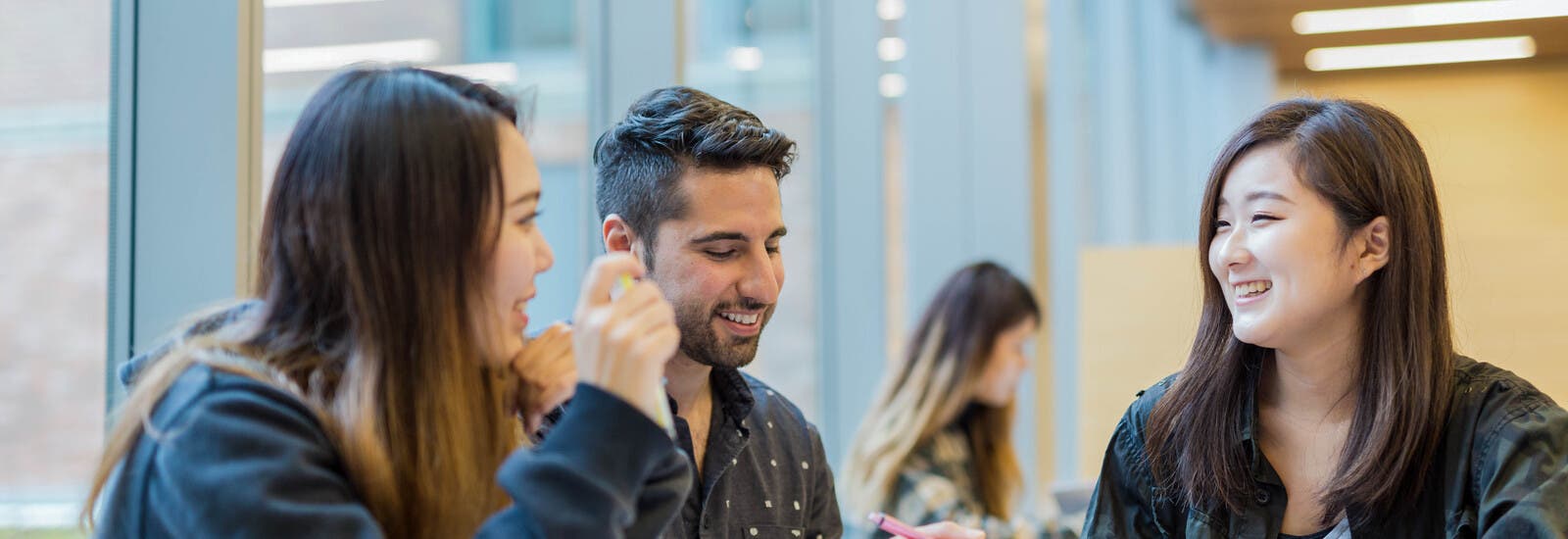EDUCATION IN THE USA
The home of innovation, the U.S. is one of the best education providers in the world. Standards are high, and degrees are globally respected. The U.S. education system is flexible, and well-suited for students who wish to gain a broad and rich education that is recognized throughout the world.
AMERICAN EDUCATION SYSTEM
Across the United States there are colleges and universities where you can achieve a higher education in both undergraduate and graduate studies. Colleges are usually smaller, offering fewer degree choices to a smaller population of students, while universities are much larger and contain multiple groups of schools or colleges in many subject areas to a large population of students.
LIBERAL EDUCATION
In the USA, you will study in a format known as “liberal arts”. Your studies will focus on your degree subject, while you are also exposed to additional disciplines you may not have otherwise chosen, including literature, art, mathematics and science. By studying a variety of subjects you will experience different learning strategies, gaining a broad knowledge and transferable skills.
EXPLORE YOUR INTERESTS
Universities in the USA usually do not require students to declare a major until halfway through an undergraduate degree. Students usually need to declare by their third year, and you are free to change, though changing does often require taking additional classes to meet the graduation requirements.
Many American students switch majors during their undergraduate studies as they discover different fields they enjoy or are good at. This allows you to try different subjects before committing to a specific course.
TYPES OF DEGREES IN THE USA
There are three main degree categories at universities in the USA, with four main degree types.
ASSOCIATE DEGREE
Many students in the USA choose to begin their education at a community college. Often, students will choose a community college in their hometown before transferring to a larger university elsewhere. Most community colleges offer a two-year undergraduate program, where students will complete one of two types of Associate’s Degrees:
- Associate of Arts (A.A.)
- Associate of Science (A.S.).
After completing the two-year degree, you can then transfer to a bachelor’s program at a larger college or university to complete two more years of study for a bachelor’s degree.
UNDERGRADUATE DEGREE
Undergraduate degrees, also known as bachelor’s degrees, are typically designed to be completed in four years of full-time study, completing roughly 180 credits, though these vary depending on the institution.
To be considered a full-time student at Western, students need to be enrolled in a minimum of 12 credits per quarter. Most students enroll in at least 15 credits per quarter to ensure completing in four years. There are bachelor’s degrees to suit all interests, from arts to sciences.
GRADUATE DEGREES
After completing an undergraduate degree, some international students choose to continue their studies at the graduate degree by completing a:
- Master’s degree or
- Doctoral degree.
Graduate degrees can be academic based, research-based or can focus on a specific industry. A typical course involves in-depth independent study, and many graduate students also teach classes at the university as part of their study. For full time students, it usually takes one or two years to complete depending on the institution.
TEACHING, LEARNING AND ASSESSMENT
Teaching in American universities involves a combination of group lectures, group discussions and individual learning. Some degrees involve practical work or fieldwork. The balance of these different aspects depends on the university and your degree. Most undergraduate degrees involve a combination of lectures, practical laboratory experience and smaller classes focused in your field.
INDEPENDENT STUDY
Throughout each degree, you will be expected to carry out independent research. You will be expected to use your resource skills to use the University’s library and online materials, with the support of a teacher or tutor. Throughout your degree you will be expected to manage your own workload.
ASSESSMENTS
The type and amount of assessment required depends on your degree. Some degrees involve regular assessment, and others may only be assessed with a final exam. Assessments may include coursework, group work, presentations, participation, essays, exams and a final dissertation.
TUTOR SUPPORT
In most American universities, you will have access to structured tutoring support at academic centers on campus, or specialized support offered through the support of a personal tutor. The role of your tutor is to provide academic support. Students tend to meet with their tutor(s) in small groups and on a one-to-one basis. This close contact gives you individual attention and support.
PATHWAY PROGRAMS
Our programs will provide you with the solid academic and English language foundation you need to progress to your degree at Western and succeed.
Discover Pathway ProgramsWHY CHOOSE WESTERN?
Become part of a community committed to making the world a better place. At Western you will receive the individual attention of a small college where everyone knows your name, with the choice and opportunities only a large university can offer.
Welcome to Western Washington